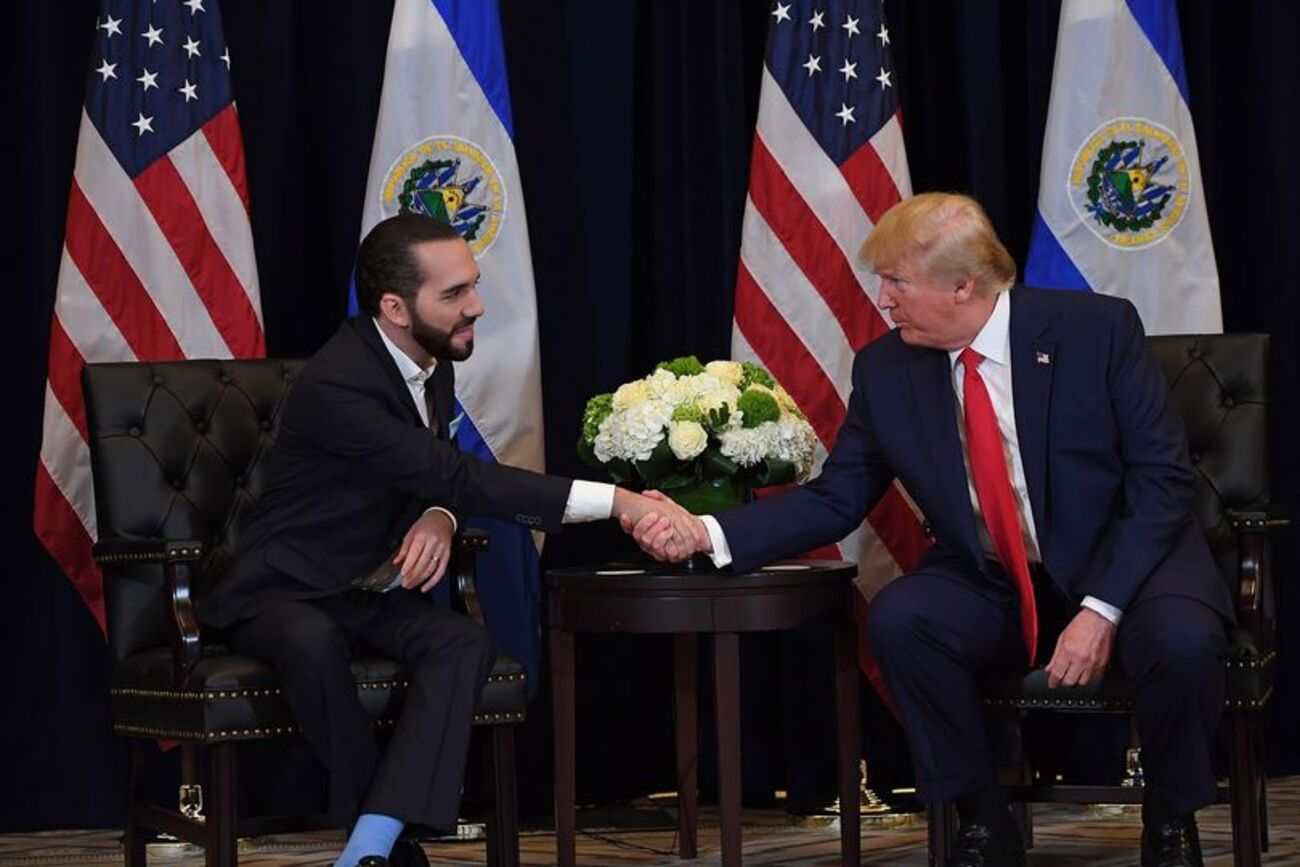A family fights 27 years of injustice from the Philadelphia District Attorney's office
Denis Calderón underwent a traumatic, violent event that led to his deportation. His family is pleading the DA’s office to keep its word.
“Is anyone out there that can help us?”
Jesenia Calderón was six years old when her father, Denis Calderón, received a guilty conviction argued by the Philadelphia District Attorney’s office, which led to his eventual deportation. At 31, Jesenia is pleading to the same DA’s office to follow through on a recommendation to the Pennsylvania Board of Pardons to bring her father back from an impoverished Peruvian town.
For well over two decades, Jesenia and her aunt, María Calderón, witnessed the unraveling of a pugnacious ADA Seth Williams, who sought to relentlessly punish her father in a case that was fraught with inconsistent findings and evidence, as well as shoddy eyewitness testimony.
“I remember being in and out of the court system [because], you know, the system takes a while,” Jesenia, a nurse and veteran, told AL DÍA.
Joined by a coalition of immigration advocacy groups, Jesenia, her aunt, and Denis — who was present via a FaceTime call — marched to DA Krasner’s office to ask that he sign a letter that could weigh significantly on her father’s wrongful conviction case, which is scheduled for review on Dec. 16.
If the board rules in favor of Denis, he could rejoin his family in Philly after spending a decade in Perú, a country he departed as a child.
Krasner, according to the family and supporting groups, made an initial commitment to deliver a recommendation on behalf of the DA’s office to cement the wrongful conviction determination that the Calderóns had been chasing for years.
But just a few weeks from the board’s convening, Krasner and his office rescinded the offer.
What happened to Denis?
It occurred in 1996 when Denis, then a Northeast Philly resident, was hosting his cousin Julio Maldonado, who’d visited the family from New York. Denis — 29 at the time — was working two jobs and raising a family.
A few hours into the night, the pair decided to take a walk around the block when they encountered a group of rowdy, drunk young men who proceeded to shout slurs and anti-Hispanic epithets upon sighting Denis and Julio.
Court records also showed the use of anti-Black slurs because the group initially confused Denis and Julio as two Black men.
The taunt escalated into violence, eventually resulting in a stab wound for Julio, who had been fighting to fend off the gang of 10. When Denis saw the stabbing, he ran back to his car to grab a club to fend off the assailants, but when he attempted to swing the bat, he testified, he managed only to graze one’s shoulder.
When local authorities arrived and broke through the bloody brawl, one gang member, an 18-year-old Christian Saladino, collapsed and fell comatose.
Saladino was not initially a part of the gang, but involved himself against the advice of his girlfriend, court records show.
Despite the fact that Denis and Julio were outnumbered 10-2, police arrested the pair after members of the group said Julio, wielding the ‘club,’ pounded Saladino with a metal object and insisted the two had confronted the gang and injured Saladino, who later succumbed to wounds from the fight.
Saladino later became the prosecution’s ace when they turned the initial assault charge against Denis into a murder conviction. Disgraced District Attorney Seth Williams, who was jailed for corruption, successfully prosecuted the case against Calderón and Maldonado.
“A new day. A new DA,” was Seth Williams’ campaign slogan.
In court, the prosecution relied on two key witness testimonies, both of whom witnessed the violent event from 100 yards, or the size of a football field, court records show, and testified their view was not obstructed by rows of fields and cars.
Still, the court of common pleas presided by Judge Gregory Smith, found the evidence and testimony plausible enough to convict Calderón.
Several years and thousands in attorney fees later, a revised medical examination revealed that Saladino had not received blunt force trauma to the head, and his death was connected to a rare blood disease, according to a pathologist’s report.
In light of the findings, Judge Smith reversed his ruling, but the DA, seeking to preserve a conviction, won on appeal in a PA superior court because, during the initial trial, Calderón’s lawyers got one medical witness to say there was no blunt force trauma.
“This was, and apparently still is, the modus operandi of the District Attorney’s office,” said Linn Washington Jr., a professor of journalism at Temple University, who for years studied and reported on Calderón’s case.
“To do what they can — fight tooth and nail — to retain tainted convictions.”
Given the second conviction on appeal, Denis lost his permanent residency status, prompting the feds to place him in an immigration prison. ICE attempted to have Denis agree to lose his citizenship on the heels of the trial outcome, but he refused since he maintained his innocence and opted to continue to battle it out in the courts.
“The federal government files a charge against them for obstructing justice by not going along with the deportation,” Washington said. “That speeds their deportation back to the country they left as 3-year-olds. They didn’t know Perú from a can of paint.”
ICE deported Calderón in 2009, the same year his daughter, Jesenia, joined the military.
Will Krasner keep his promise?
“That’s why we have been asking the DA’s office conviction integrity unit to review the case, and they were, up to about 18 months ago,” noted David Bennion, the Calderóns’ immigration attorney.
RELATED CONTENT
Initially, Bennion said, the DA’s office was open to reviewing the charges of the case in its entirety. It was presented to them in 2018, when Calderón’s family brought the case again to Krasner’s office but backtracked for reasons undisclosed, followed by an offer to deliver a letter of pardon.
“That seemed like a viable option until just this week,” Bennion continued. “They said to Denis, ‘you get nothing’ to correct or even review this injustice that was done.”
Bennion says that under the law, “[The District Attorney's office] has a lot of discretion, and this DA is holding himself out as a champion of the people, claiming he’s on the side of justice, and he’s gotten a lot of support from community members, organizations, and elected officials who believed in that (...) if he’s going to be on the side of people and justice then he needs to do what’s right. And this is the case where he needs to do it.”
Although Krasner has not communicated with the family after retracting the letter, Bennion and other advocates say the move is political.
Krasner has spent the better half of 2022 pushing back against an incoming impeachment trial leveled by the PA state, with the hopes of removing him as DA for an alleged failure of executing what Krasner opponents deem ineffective progressive policies.
Philadelphia progressives have, for the most part, repudiated the impeachment, calling it a “baseless attempt to unseat a duly-elected District Attorney” and a “thinly veiled political stunt intended to sway voters during an election year.”
Jesenia wears the scars of her father’s wrongful conviction
Jesenia and her brother, meanwhile, continue to bear the brunt of her father’s exile.
In 2018, she decided to resume her father’s legal battle and is now steps away from reversing the 1996 conviction.
But the weeks leading up to the board’s pardon meeting became unexpectedly shifty when the DA’s office entered into a back-and forth-with Jesenia and her legal team.
First, the office offered to write the letter and then asked Jesenia and her team to do so.
“A few weeks ago, they said, ‘well, you write the letter, and we’ll just sign it.’ So at first, they were going to make the letter, then they wanted the lawyers to create the letter so they could just sign. And then, two weeks before my father’s hearing, they said they wouldn’t sign it.”
Denis’ case also dealt damage to the family, who are still recovering from his deportation more than 10 years later.
Jesenia says she “saw her mom go through depression while the whole thing was happening because she had to raise me and my brother on her own.”
“She would cry every night in bed. So I was like 14 going to sleep in bed to keep her company and hear her playing songs to help her,” said Jesenia.
“It was hard on everyone.”
But the circumstances have not deterred Jesenia from trying to right the wrongs of previous DA’s, and she is prepared to continue seeking avenues to seek justice for her father.
“You don’t just give up on your father,” she said.











LEAVE A COMMENT:
Join the discussion! Leave a comment.